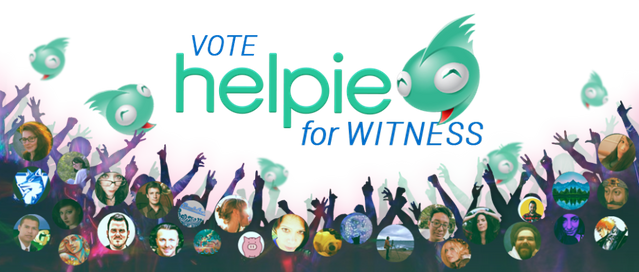The Able Slave
Sometimes, in order to explain certain principles that are not immediately apparent when talking about them in real-world scales, it helps to reduce the world to the size of a small island. Today we're going to do that to explore some of the fundamental differences between left and right in this everlasting ideological divide.

Image by johnhain - source: Pixabay
I use this technique of miniaturization myself quite regularly. For example, it's very easy to imagine how much wealth one person can produce by his- or herself, by placing an imaginary person on an imaginary uninhabited island; I've used this particular thought-experiment to show in no uncertain way that we, all of us, owe most of our wealth to the fact that we are part of a society. If you work hard every day of your life, you'll own, at the very most, a wooden cabin, a small vegetable garden and maybe one or two domesticated animals at the end of your life if it's spent on that uninhabited island. This of course leaves open how societies can possibly be organized, and how much each individual can or will profit from their being part of that society, and how their role in it determines their share of the pie.
Humans have imagined quite a few ways to organize society, from the moment it became an issue; for the most part of our existence on this planet this was not an issue because we lived as nomadic tribes in a completely natural and non-hierarchical manner. Only about 10,000 tears ago, with the invention of agriculture, and with it the ability to produce more food than we needed to survive, we stopped moving around in small bands and settled in much larger numbers in the places where food-production on larger scales was possible; in these fertile places the first city-states were built and humans needed a set of rules to organize themselves around. Several studies, and also empirical evidence show that societies larger than around 500 individuals lose the ability to self-organize; this is also the main reason why egalitarian socialistic or communistic have only succeeded on those small scales, like some hippy projects and Kibbutz communities in Israel for example.
The current ideological divide between the left and the right is nothing new, as it has existed since the very first time we started settling in large numbers in a limited geographical space. And from the beginning the left versus the right has been roughly aligned along the lines of the many poor versus the few rich, the consumers versus the producers and the workers versus the owners. Because the poor were always many, and the rich have always been few, there's another obvious difference between the two; the poor, because they have many peers, have always looked at their place in society as a function of being part of that society, whereas the rich have always looked upon their position as a function of their own achievements, and have always felt the need to protect their private property, not in the last place against the poor multitude. Even though I'm just free-writing all of this, it's based on many books, documentaries, lectures and well known philosophies, so I hope you can all follow up to this point; it's really not rocket-science anyway ;-)
To inspire you, dear reader, to contemplate this hot issue even further, I'd like to share with you a parable that's rather popular among libertarians, conservatives, neoliberals and classical liberals; in short, those ideologies that look upon one's position in society as a function of their individual rights and achievements primarily, as opposed to the ideologies that use commonality, community and egalitarianism as their prime perspective, like socialism, communism and variations thereof. It's the parable of Abel, the able slave:
There are ten people on an island. One of them, able Abel, is extremely able and can produce enough to feed ten people with a hard day's work. Eight nameless inhabitants are moderately able and can produce only enough to feed themselves with a hard day's work. And then there's Tricky Dicky, who can not produce anything at all.
Libertarians want us to consider the following questions:
- Do the nine moderately able and unable persons have the right to tax Abel to feed Tricky Dicky?
- If Abel decides to take most of his days off and produce only enough to feed himself, do the bottom nine have the right to force Abel to work more in order to support Tricky Dicky?
- Do the nine moderately able and unable persons have the right to tax Abel to raise everyone's standard of living?
- If Abel decides to take most of his days off and produce only enough to feed himself, do the bottom nine have the right to force Abel to work more in order to raise everyone's standard of living?
Now you know why the parable calls Abel a slave; from the individualistic point of view, it would indeed be the case that if questions 2 and 4 are answered in the affirmative, Abel would be an actual slave. And the same is true for questions 1 and 3 effectively when we see these islanders as individuals only. Another indication of the individualistic approach in the parable and the questions, is the strong implication of Abel's uniqueness; he is truly uniquely able, much in accordance with the meritocratic ideas found in the individualistically geared ideologies. In my leftist world-view this parable simply doesn't hold up for many reasons, the first of which hearkens back more than 10,000 years: such small groups would naturally evolve toward an egalitarian mini-tribe. Abel isn't 1000 miles removed from Tricky or the others, and vice-versa. There is no set of rules to maintain a class structure or to hide behind.
I'll leave it here. Like I said: this is just something I wanted to share with you to contemplate yourself, dear reader. And I really like the parable, even if I don't share it's message it's another little scenario that, because of its small scale, makes clear a great deal about the ground-rules that govern our current societies and it shows how one can legitimately be of the opinion that Abel is a slave and that taxing him would be theft. I hope this helps in making you understand some of the fundamental differences between the ideological opponents in one of the longest lasting human debates. For your entertainment, here's a debate between a libertarian and a leftist, and I would add that both libertarians and leftists come in many flavors and many degrees of extremity; not all libertarians want to completely dissolve the government and not all leftists are communists or socialists. It's even safe to say that for most people a combination of both is the best way forward, we all combine elements of both and it's just the composition of the mix that determines where we land on the political and ideological spectrum.
Sam Seder v. Anthony Furey: Libertarian Debate
Thanks so much for visiting my blog and reading my posts dear reader, I appreciate that a lot :-) If you like my content, please consider leaving a comment, upvote or resteem. I'll be back here tomorrow and sincerely hope you'll join me. Until then, keep steeming!

Recent articles you might be interested in:
| Latest article >>>>>>>>>>> | Joker |
|---|---|
| Billionaires & The Social Contract | Work Related |
| Stay Up Close And Personal | Identity Propaganda |
| Max Verstappen: Ferrari Is Cheating! | Taxation Is Theft, Apple Is Great |

Thanks for stopping by and reading. If you really liked this content, if you disagree (or if you do agree), please leave a comment. Of course, upvotes, follows, resteems are all greatly appreciated, but nothing brings me and you more growth than sharing our ideas. It's what Steemit is made for!


Just for Full Disclosure, I'm invested in these crypto-currencies:
Bitcoin | Litecoin | EOS | OmiseGo | FunFair | KIN | Pillar | DENT | Polymath | XDCE | 0x | Decred | Ethereum | Carmel | XYO

@helpie is a WITNESS now! So please help @helpie help you by voting for us here!

In a small tribe like Able was in and with little to no rules I would think Able and the other 8 would support Tricky Dicky with the basic needs anyway.
Posted using Partiko Android
Or send him out to sea 😐... Things tend to devolve into a Lord of the Flies shituation quickly when people are trapped and left to their own devices.. Just my devils advocate 2 cents 😈
Posted using Partiko Android
Yes that outcome would also be very likely.
Agreed @j85063 :-) Yet, @skramatters scenario wouldn't surprise anyone, but I believe that's because of our egotism based paradigm. On Trybe one of the libertarians responded by saying the islanders should turn to cannibalism because that way Tricky "becomes a producer and is no longer a net drain on the economy"... Says a lot about that mindset I believe ;-)
Curated for #informationwar (by @thoughts-in-time)
Our purpose on steem is to encourage posts discussing information war, propaganda, disinformation, and liberty. We are a peaceful group of truth-oriented individuals. The topics we write about are those that the controlled social and mainstream media actively suppress. You can learn more about our mission, various websites, and community benefits by clicking here!
Ways you can help the @informationwar!
Together we can defeat the censors by embracing decentralized platforms.